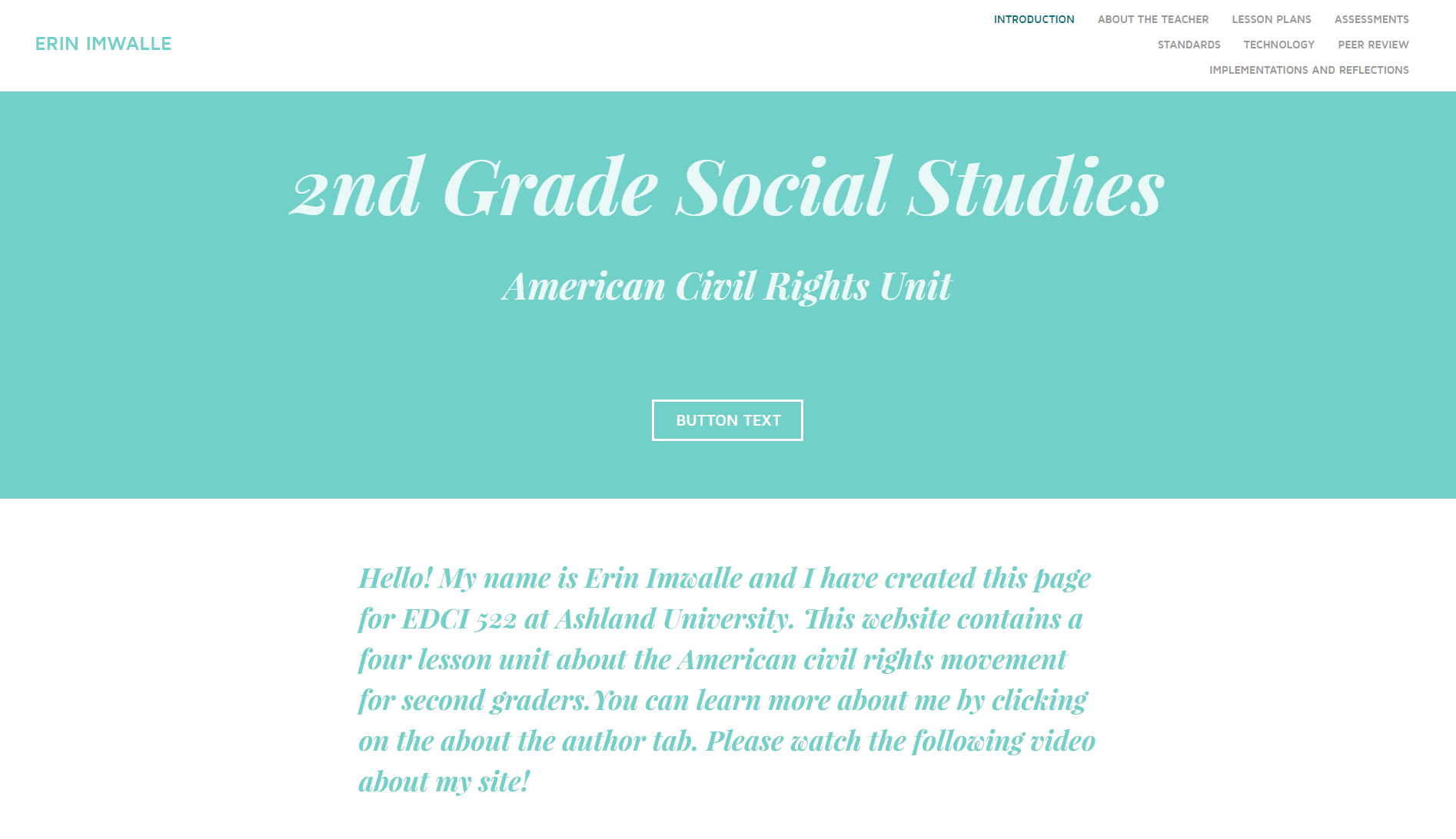American Civil Rights Unit
2nd Grade
Communication and Collaboration
Communicate Clearly
• Articulate thoughts and ideas effectively using oral, written and nonverbal communication skills in a variety of forms and contexts (Lessons 3 and 4)
• Use communication for a range of purposes (e.g. to inform, instruct, motivate and persuade) (Lessons 2 and 4)
• Utilize multiple media and technologies, and know how to judge their effectiveness a priori as well as assess their impact(Lessons 1, 2, 3 and possibly 4 if online poster was made)
Information Literacy
Access and Evaluate Information
• Access information efficiently (time) and effectively (sources) (Lessons 2 and 3)
• Evaluate information critically and competently (Lessons 2 and 3)
Use and Manage Information
• Use information accurately and creatively for the issue or problem at hand (Lesson 3)
• Manage the flow of information from a wide variety of sources (Lessons 2 and 3)
ICT (Information, Communications and Technology) LITERACY
Apply Technology Effectively
• Use technology as a tool to research, organize, evaluate and communicate information (Lessons, 2, 3, and 4 if online poster was made))
Initiative and Self-Direction
Work Independently
• Monitor, define, prioritize and complete tasks without direct oversight (Lessons 2 and 3)
Be Self-directed Learners
• Go beyond basic mastery of skills and/or curriculum to explore and expand one’s own learning and opportunities to gain expertise (Lesson 3)
(Lessons 1-4)
Grade: 2nd
Theme: People Working Together
Strand: History
Topic: Heritage- Ideas and events from the past have shaped the world as it is today. The actions of individuals and groups have made a difference in the lives of others.
Content Statement 4. Biographies can show how peoples’ actions have shaped the world in which we live.
Google Sites- Used for the webquest in Lesson 4.
Google Forms- Used for peer review.
Youtube- Used for overview video. Also used in dipity timeline and prezi presentation.
Screencast-o-matic-Used for overview video.
Prezi-Used by the teacher in lesson plan 1.
Dipity- An interactive timeline that students will use in groups during lesson 2.
Glogster- Students may use glogster to make an online poster for their webquests.
